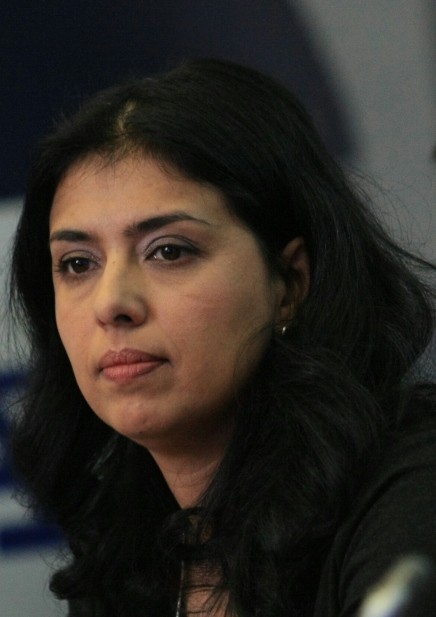Are worker’s rights protected and how the Bulgarian syndicates try to help people who became jobless during the state of emergency?
Unemployment in Bulgaria will increase from 4.2% in 2019 to 6.2% in 2020, the recent forecasts read. The newly-registered unemployed since the beginning of the year are over 60,000, of whom nearly 48,000 people are entitled to unemployment benefits, data of the Confederation of Independent Trade Unions in Bulgaria (CITUB) reads. According to statistics of the National Employment Agency, in March only, some 38,000 people lost their jobs and most of them registered at the employment offices after the introduction of the state of emergency in Bulgaria on March 13. The number of jobless Bulgarians with university degree has also increased.
Experts from CITUB forecast that by the end of 2020 the number of unemployed in this country will increase by another 70,000 people. That is why the syndicate proposes several additional measures for support of the Bulgarians who are most affected by the crisis caused by the Covid-19 pandemic, including increase of the minimum daily unemployment benefit from EUR 4.5 to EUR 9, deferral of social security contributions, support for self-employed people with low revenues, as well as additional paid leave for parents of children aged 14 or under.
The Confederation of Labor Podkrepa also proposed a set of measures to the Bulgarian government aimed at providing support for families without incomes:
 “First and foremost, the state budget should compensate the Bulgarian workers who lost their incomes under the following scheme: the budget should pay 100% of the salaries of people whose monthly wages amount to EUR 400 or under. The state should guarantee 80% of the wages of those who receive up to EUR 750 a month and pay 60% of the wages of the Bulgarians whose monthly income is up to EUR 1,250, the chief economic advisor to the Confederation of Labor Podkrepa Vanya Grigorova told Radio Bulgaria-This is the main and most-important measure which had to be adopted by the authorities. However, the cabinet proposed the 60/40 wage support scheme, according to which 60% of the salary and the social security contributions are paid by the state and the remaining 40% - by the employer. Unfortunately, most Bulgarian employers cannot afford it, especially the micro and small enterprises. The big companies will benefit from this wage support scheme instead. Other companies will never resort to any budget support, because they would not like to come into the sights of the National Social Security Institute, the Labor Inspectorate and the tax authorities. As a result, workers who are not to blame for their employer’s dishonesty are left without support.”
“First and foremost, the state budget should compensate the Bulgarian workers who lost their incomes under the following scheme: the budget should pay 100% of the salaries of people whose monthly wages amount to EUR 400 or under. The state should guarantee 80% of the wages of those who receive up to EUR 750 a month and pay 60% of the wages of the Bulgarians whose monthly income is up to EUR 1,250, the chief economic advisor to the Confederation of Labor Podkrepa Vanya Grigorova told Radio Bulgaria-This is the main and most-important measure which had to be adopted by the authorities. However, the cabinet proposed the 60/40 wage support scheme, according to which 60% of the salary and the social security contributions are paid by the state and the remaining 40% - by the employer. Unfortunately, most Bulgarian employers cannot afford it, especially the micro and small enterprises. The big companies will benefit from this wage support scheme instead. Other companies will never resort to any budget support, because they would not like to come into the sights of the National Social Security Institute, the Labor Inspectorate and the tax authorities. As a result, workers who are not to blame for their employer’s dishonesty are left without support.”
The Confederation of Labor Podkrepa has proposed measures to support people who are not entitled to unemployment benefits. According to this labor union, such people should receive minimum compensations, so they can survive until they start working again. This measure also concerns Bulgarians who had part time jobs or worked without job contracts. The government offered a lump sum of nearly EUR 200 to mothers or parents in unpaid leave. However, the Confederation of Labor Podkrepa contends that this money is meager and it will be difficult for the applicants to meet the criteria. In order to find money to help the needy, Bulgaria must adopt a progressive tax system and introduce a 40% corporate tax, Vanya Grigorova contends.
English version: Kostadin Atanasov
Photos: BGNESLove blooms with renewed vigour every year on 14 February! Valentine's Day is increasingly being celebrated in Bulgaria as a holiday that inspires lovers to share beautiful moments together. Traditions include the exchange of cards, gifts and romantic..
From February 14 to 16, an event under the motto "Love and Wine" will allow Sofia residents and guests of the city to combine the Bulgarian holiday of wine Trifon Zarezan with Valentine's Day. It will be held on the pedestrian zone..
World Radio Day - 13 February, this year is dedicated to climate change. The choice is no coincidence—2025 has been identified by the Paris Agreement as a crucial year for humanity to achieve its long-term goal of limiting global warming to a maximum of..
Prayer served by His Holiness Bulgarian Patriarch Daniil on February 22, marks the beginning of the celebrations for the consecration of..
In the era of increased digitalization and the penetration of artificial intelligence into all spheres of our lives, the professions of people with high..
The festive service for the consecration of the new Bulgarian Orthodox church in London is led by His Holiness Daniil , Patriarch of Bulgaria, who also..

+359 2 9336 661
